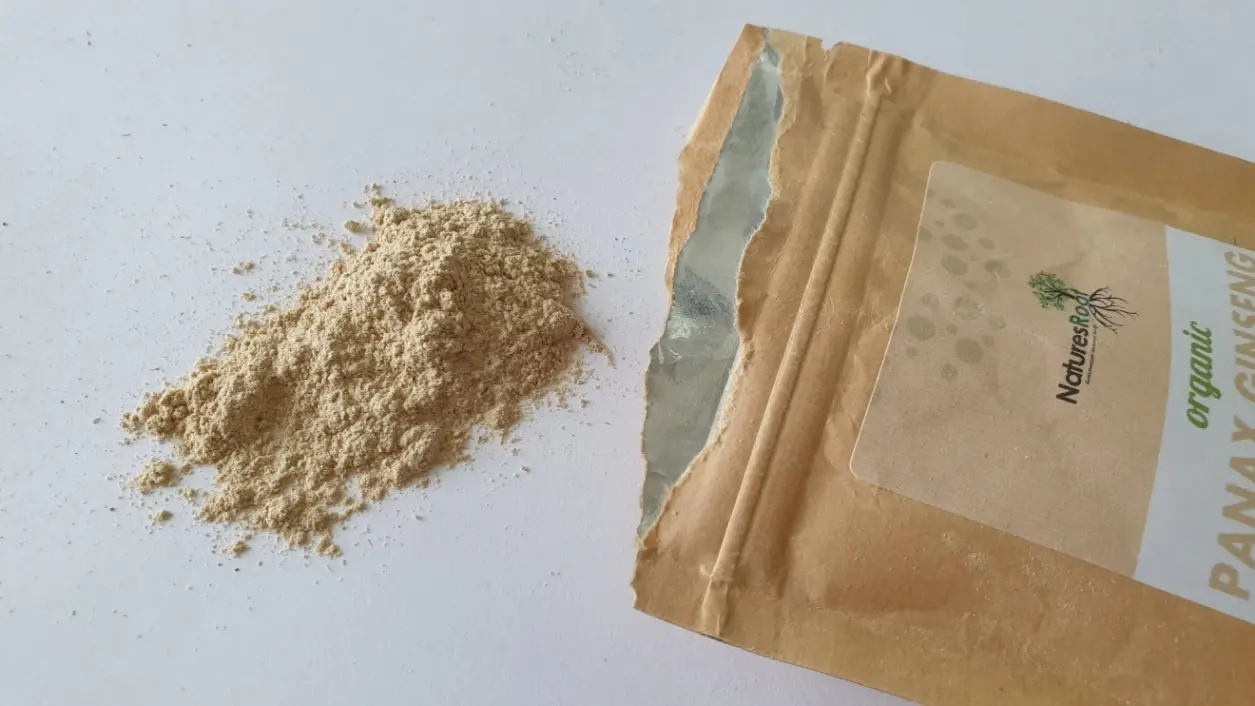Ginseng #
| Binomial / Botanical Name | Panax Ginseng |
| Street Names | Ginseng |
| Major Active Compound | Ginsenosides |
| Indigenous Source | East Asia |
| Form | Root Powder |
| RoA | Oral |
| Personal Rating On Shulgin Scale | + |

SUBJECTIVE EXPERIENCE #
Is ginseng psychoactive? I have my doubts, but it has found its way into this book by virtue of its presence on Erowid and citations across a multitude of sources which claim that it acts as an aphrodisiac, that it is energising, that it aids cognitive function, and even that it can treat depression.
Further, Christian Rätsch, in his Encyclopedia of Psychoactive Plants, adds to this impression:
“Ginseng is one of the most well known aphrodisiacs and is also regarded as a panacea (Kimmens 1975). The ginsenosides in the root have general tonic and stimulating (“harmonizing”) effects on the body and mind (Fulder 1984, 1985).”
Unfortunately, there appears to be no medical confirmation of any of this, although I did find one paper (Br J Clin Pharmacol) from 2013 which stated that:
“It is estimated that, in the US, Ginseng is the second most used psychoactive herbal product [b31]. The active components are believed to be the ginsenosides, of which over 30 have been isolated, though many exist in trace amounts”.
Regardless, I am expecting nothing from it.
The usual modus operandi for ginseng appears to be habitual or daily use, which is usual for nootropics. I looked long and hard across drug forums for single-use experience reports but found little. Most posts referred to combinations with other herbs, with the few I found for ginseng alone citing doses ranging from 500mg to 2g.
More generally Webmd.com stated that “Panax ginseng has most often been used by adults in doses of 200 mg to 3 grams by mouth daily for up to 12 week.” Drugs.com stated similarly “According to the Complete German Commission E Monographs, crude preparations of dried root powder 1 to 2g can be taken daily for up to 3 months”
The instructions on the external wrapping of my supply suggested a dose of 1-3g two or three times per day, but after much consideration I elected to dose with 5g on three occasions (morning, afternoon and evening).
On the day in question I opened my account at 9.30am with a hot water (not boiling) tea infusion of the first 5g.
It smells a little bland and slightly woody and tastes relatively sweet. It goes down easily and is broadly okay; and at least the powder dissolves reasonably well.
An hour later I feel clear and positive, but normal, and it strikes me that any effect from this is going to be very difficult to distinguish from placebo.
I’m not particularly energised, and at 12:30 I drink my second 5g infusion hoping for more. I still don’t notice much, but as usual for this time of day I am sleepy, so I have a nap of about 20 minutes. On waking I am relaxed and I feel fine but as earlier not noticeably energised or high in any particular way.
At 3:30pm I take my final 5g dose. Again, no obvious stimulation or energy boost arises, nor any of the other cited effects. I just feel my usual self, but on a good day as opposed to a bad one (once I get past my background tiredness).
The night’s sleep was of reasonable quality, and although I felt a little heavy headed in the morning I was generally well.
Overall I felt quite positive throughout, particularly after my afternoon sleep. There was nothing specific, however, that I could pin the term psychoactive to. Perhaps if you believe in this plant, have the correct intent, and use it regularly, it can be more powerful than I found it to be.